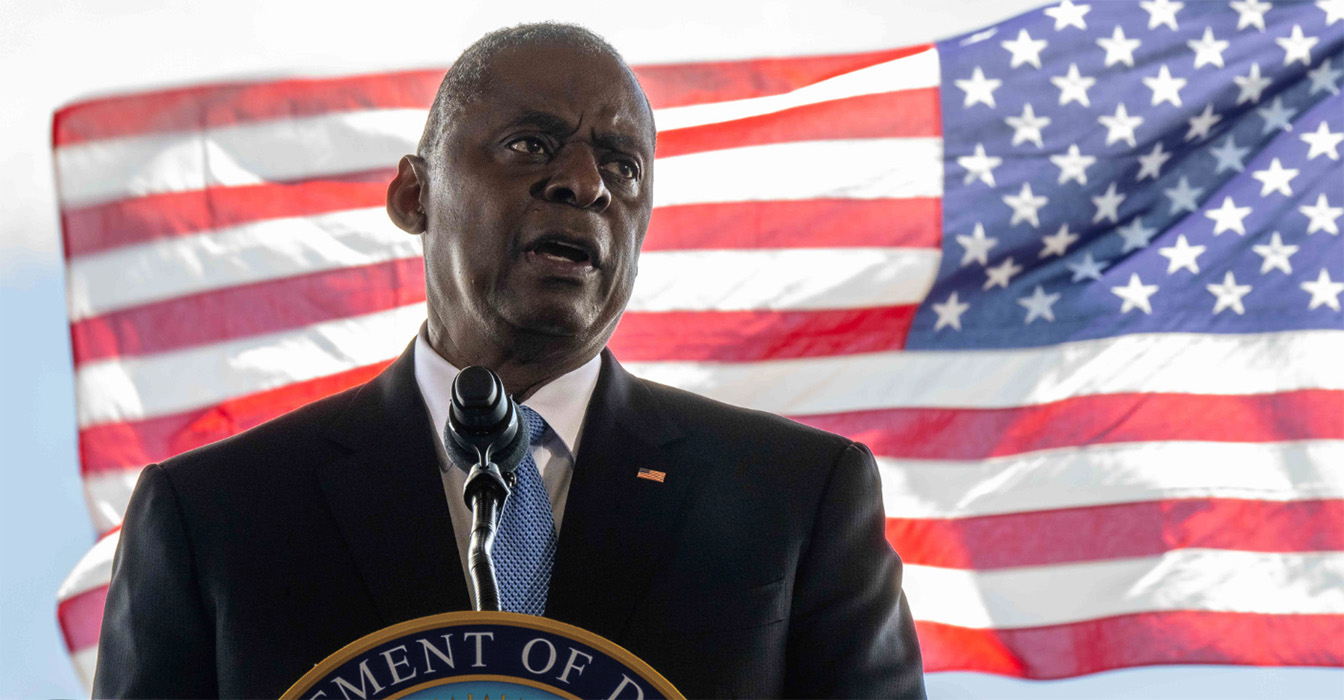A federal appellate court ruled Friday that former Sec. of Defense Lloyd Austin acted lawfully when he withdrew from plea agreements the Guantanamo Bay court’s overseer reached with the accused Sept. 11 plot mastermind and two co-defendants nearly a year ago.
The long-awaited order by the U.S. Court of Appeals for the D.C. Circuit reversed rulings by two lower courts that the plea agreements for Khalid Shaikh Mohammad, Walid bin Attash and Mustafa al Hawsawi remained valid.
Judges Patricia Millett and Neomi Rao determined in a 50-page opinion that Austin “indisputably had legal authority to withdraw from the agreements” and that the government met the high standard of seeking a writ of mandamus and a prohibition of the entry of pleas. Judge Robert Wilkins dissented by concluding that the government failed to prove that the 9/11 trial judge had erred “clearly and indisputably” when rejecting Austin’s revocation of the plea deals.
"We have every reason to believe the opposite," Wilkins said in a 75-page dissent that described the majority's ruling as "stunning."
The defendants had agreed to admit to detailed accounts of their alleged roles in the 9/11 attacks in exchange for the death penalty being removed as a possible sentence. They signed plea agreements with Austin’s appointed “convening authority,” Susan Escallier, on July 31, 2024, but Austin himself attempted to revoke the deals two days later – sparking a complex wave of litigation that has now lasted a year.
The defense could seek an en banc hearing from the D.C. Circuit or appeal to the U.S. Supreme Court. Air Force Col. Matthew McCall, who had earlier found that Austin acted unlawfully, retired from the Sept. 11 military commission in the spring. The case is still awaiting a new judge, with the commission system's chief judge serving as a placeholder.
McCall ruled in November that Austin could not withdraw from the agreements because the defendants had started “performance” under its terms by declining to participate in ongoing pretrial litigation for a fourth defendant and by signing lengthy stipulations attesting to their roles in the attacks.
A three-judge panel of the U.S. Court of Military Commission Review upheld McCall’s ruling in late December. He was about 15 hours from beginning Mohammad’s guilty plea in January when the D.C. Circuit granted the government’s request to stay the proceedings while it pursued its writ of mandamus.
The Circuit heard arguments for about four hours on Jan. 28. Judges Millett and Rao said in their ruling Friday that the defendants had not started performance under the terms of the plea agreements, in part because they had signed their stipulations of fact prior to signing the deals. Wilkins disagreed in his dissent, concluding that the defendants "clearly and indisputably began performance of at least three of the many promises they made" in the deals.
The removal of the death penalty and avoidance of a guilt-or-innocence trial for the worst-ever crime on America soil was met with intense opposition by senior political figures, as well as by some family members and survivors. Other family members and politicians supported the deals for bringing finality to the proceedings, which date to the May 2012 arraignment. Both defense lawyers and the lead prosector, Clay Trivett, who played a lead role in reaching the deals, have said that the sentencing hearing would be a months-long public trial at which the government would establish an important record of the 9/11 attacks.
The three plea agreements contained provisions that removed the death penalty from the case in the event the government withdrew from or breached the deals. Defense lawyers have said during the course of this litigation that the death penalty would be off the table for their clients if the government succeeded in its appeal to the D.C. Circuit.
With McCall's recent departure and the possibility of more appeals, the fate of the 9/11 prosecution remains as uncertain as ever – with additional complications posed by the diverging litigation paths for two of the detainees originally charged in the case.
A fourth defendant, Ammar al Baluchi, a nephew to Mohammad, declined to enter into a plea deal and instead pursued the case’s primary pretrial dispute over the admissibility of confessions given to FBI agents on Guantanamo Bay in January 2007, about four months after his transfer from CIA black sites. McCall heard closing arguments on that dispute during the last week of January. In April, he issued a ruling that suppressed al Baluchi's statements to the FBI because of his past torture by the CIA – a critical victory for the defense team.
Absent a successful appeal of Friday's ruling, the three defense teams who signed pretrial agreements will need to restart their suppression cases and other pretrial litigation. In his final months on the bench, McCall had raised the possibility of severing al Baluchi's case from his three co-defendants. McCall severed a fifth defendant, Ramzi bin al Shibh, from the case in September 2023 after finding he was not mentally competent to assist in his own defense.
About the author: John Ryan (john@lawdragon.com) is a co-founder and the Editor-in-Chief of Lawdragon Inc., where he oversees all web and magazine content and provides regular coverage of the military commissions at Guantanamo Bay. When he’s not at GTMO, John is based in Brooklyn. He has covered complex legal issues for 20 years and has won multiple awards for his journalism, including a New York Press Club Award in Journalism for his coverage of the Sept. 11 case. His book on the 9/11 case is scheduled for publication in August.


